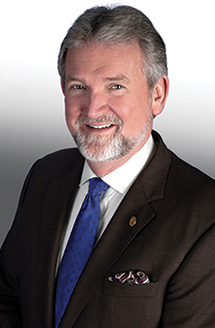November 2013—PT for the passionate and the savvy I believe that most pathologists and laboratory professionals enjoy refining systems and processes to further promote quality practices in their laboratories. We may not think about discipline and precision when somebody mentions passion, but passion is what those inclinations represent. While passionate pathology can manifest in a host of ways, this month I’d like to talk about how it drives excellence in CAP Surveys or proficiency testing (PT) programs.
More than 60 years ago, the pathologists who founded the CAP made quality improvement a core element of our mission. Today, we are indebted to the more than 300 subject-matter experts serving on CAP scientific resource committees who honor that legacy. These volunteer members teach and learn from one another in the CAP peer-to-peer model. As they do, their discipline and precision protect our patients and move our specialty forward.

Dr. Herbek
CAP Surveys programs are organized by discipline within 25 scientific resource committees that report to the Council on Scientific Affairs, chaired by R. Bruce Williams, MD. CAP volunteers on these committees collaborate on highly technical matters that require a pathologist’s combination of scientific skill and medical judgment. They write the specifications for more than 600 Surveys (another 48 will be added for 2014) that give our manufacturers a target range for each analyte in each Survey—not a middling number but a critical decision threshold that intentionally challenges the entire laboratory system. They evaluate existing Surveys, consult on grading of results, and develop new tests at the cutting edge of our science. They supervise our staff in benchmarking that tells each pathologist how well his or her laboratory team is performing and lets them know if it appears that they will soon need to calibrate their instruments. CAP PT is a huge undertaking that enables patient safety via consistent excellence in all testing, from the routine to the more esoteric. As passionate pathologists, that’s exactly how we want it.
CAP Surveys programs do meet regulatory requirements, but that is not their first purpose. They are designed to help members and customers construct laboratory systems the results of which are absolutely reliable guideposts in clinical decisionmaking. CAP laboratory quality improvement programs enable the blood bank staff to know that patients are getting the right amount of the right blood product at the right time. They tell infectious disease physicians that reports from the microbiology laboratory will identify the right organisms for the right antibiotics. They ensure that genetic tests for tumors and the pathologist’s advice about the best targeted therapies can be trusted.
CAP Surveys address potential matrix effects that can sometimes occur when certain PT materials are heavily modified or processed. Surveys with matrix effects may have unexpected characteristics that affect analyte measurement in laboratory chemical analyzers. To address the need for matrix-free materials, the CAP produces a limited number of accuracy-based Surveys. These are based on freshly prepared human serum drawn and processed with minimal, if any, modification. Their target values are assigned by reference method procedures.
Anthony A. Killeen, MD, PhD, professor and vice chair for clinical affairs and director of clinical pathology at the University of Minnesota Medical School, who chairs the CAP Instrumentation Resource Committee, explains that matrix effects are ordinarily a limitation of many chemistry PT materials that may prevent direct comparison of program participants’ results between users of different manufacturers’ systems or different methods. In practice, participants in PT programs are frequently assessed using peer-group grading, but if a method has a bias that would affect patient results, it is not always easy to spot that when differences between methods might simply be caused by matrix effects in the PT material.
The CAP is expanding its range of accuracy-based (or matrix-free) Surveys. They may appear to be expensive until the downstream costs of unnecessary or inappropriate treatments are taken into account; then these innovative tools become a real bargain. While matrix-free proficiency tests cost more to offer than regular testing materials, in specific cases they are far more effective in finding and identifying the sources of problems. The CAP has a wide range of accuracy-based programs.
Whether or not the PT Survey grading is accuracy based, the process of formulating high-quality test materials and challenges to our specifications can add to the price, even with member volunteers. Scientific resource committee experts spend long hours deconstructing the data when each of the three annual Surveys are complete and using what they learn to inform continuous quality improvement. You might be able to spend less and still meet regulatory requirements; the question is whether you are checking off a to-do list or investing in science and education that protects your patients. CAP Surveys are about education and patient safety. Excellence in laboratory practice is essential to ensure that our colleagues on the medical team can trust the quality and precision of test results that inform clinical decisionmaking.
Our volunteer experts make themselves available when a CAP staff member needs help to answer a customer inquiry. They collaborate to write scholarly critiques that are returned to participants, often with citations from the literature for further study, which are widely used by the laboratory staff for educational credits required to maintain their certification. They publish articles in the Archives of Pathology & Laboratory Medicine about what we learn from our results (a great deal!), and review guidelines developed by the CAP Pathology and Laboratory Quality Center. They review and update checklists for the Laboratory Accreditation Program. When requested, they also comment on policy matters for the CAP advocacy staff in Washington, DC.
The CAP mission statement calls on us to foster excellence in the practice of pathology and laboratory medicine because quality in the laboratory isn’t a choice we make but a product of the passionate commitment to patient safety that is in our DNA.
[hr]
Dr. Herbek welcomes communication from CAP members. Write to him at president@cap.org.
![]()